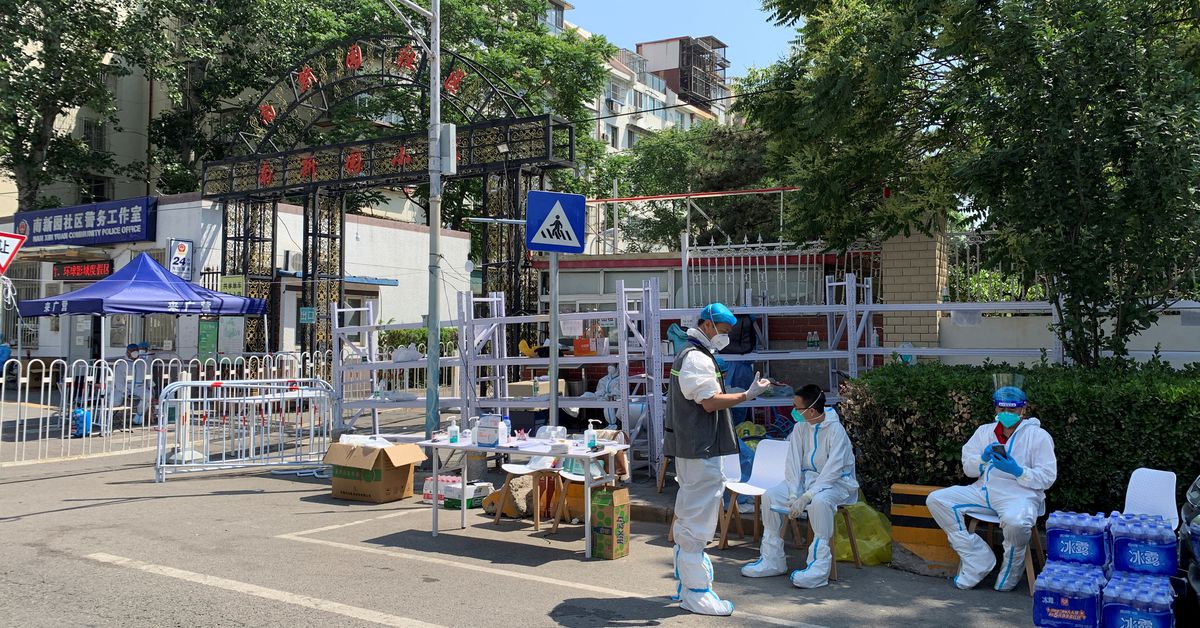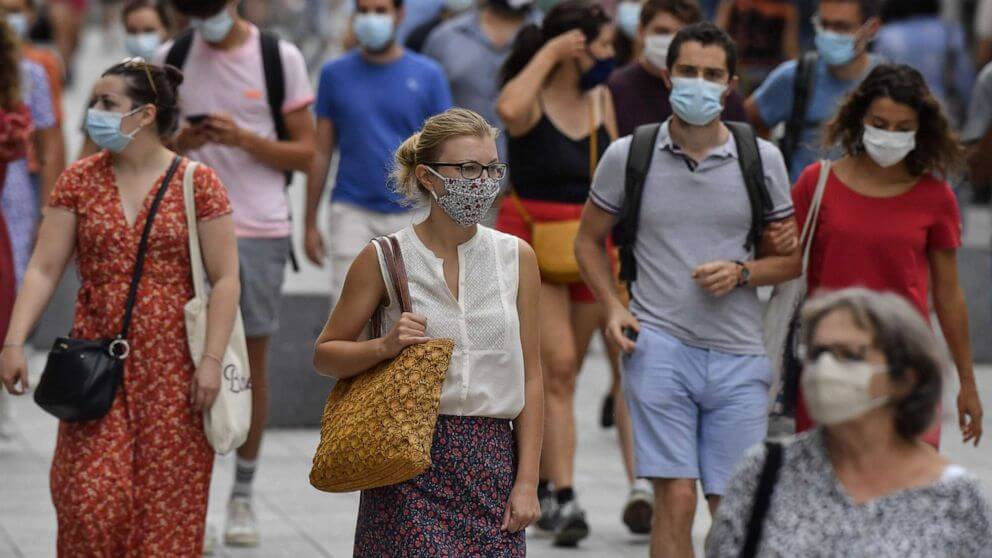Beijing reports over 1400 new COVID cases
Wed 23 Nov 2022, 11:27:09

Beijing: Chinese capital Beijing reported a record high of over 1400 new Covid cases on Tuesday, as the city was put under severe restrictions and snap lockdowns of individual buildings sans an official “citywide lockdown”. Authorities have shut businesses, and offices and sent schools online, closed many restaurants and forced employees to work from home.
Beijing has seen a continuous rise in new cases recently from 621 on Sunday to 962 on Monday and 1438 on Tuesday which is a pandemic record for the city as declared officially. Long PCR testing queues can be seen in Beijing due to the requirement for a 24-hour negative test for entry to most public spaces which are not yet closed. Over the weekend, authorities advised residents to stay and home and not travel between districts.
And on Monday required travellers to the city to test more times after they arrive.
Mainland China recorded more than 28,000 new infections, nearing the record high since the pandemic began, with Guangdong province and the city of Chongqing logging over 16,000 and 6,300 cases respectively, health authorities said.
China recently tweaked coronavirus measures dubbed as an "optimisation" to limit the economic and social impact of zero-Covid measures which included a reduction of compulsory quarantine times for international arrivals. But the latest escalation in an outbreak is testing the optimized policy as officials keen to avoid citywide lockdowns like Shanghai's two-month ordeal in April, are finding it difficult to quell the outbreak. Multiple Chinese cities cancelled mass Covid testing last week but some later reinstated them, underlining the difficulty of controlling the fast-spreading Omicron variant.
Chinese authorities are facing an awkward situation
where they are trying to contain the new outbreaks with their old and excessively costly Zero-COVID strategy involving whole-area lockdowns, mass quarantines and frequent universal PCR testing but such measures have proved ineffective in the face of highly transmissible but much milder Omicron. Experts say that in such a scenario, China’s insistence on following old playbook looks stubborn and self-defeating.
where they are trying to contain the new outbreaks with their old and excessively costly Zero-COVID strategy involving whole-area lockdowns, mass quarantines and frequent universal PCR testing but such measures have proved ineffective in the face of highly transmissible but much milder Omicron. Experts say that in such a scenario, China’s insistence on following old playbook looks stubborn and self-defeating.
China’s recently unveiled “optimized Zero-COVID policy” indicated that Beijing might have started to realize the necessity of learning to live with the virus, but experts opine, China’s Covid-19 narrative is proving hard to change after years of one-sided propaganda which often hyped up the threat of Omicron to justify draconian control measures.
In May this year, the World Health Organization warned that China’s massive regular PCR testing was “unsustainable”, but Beijing strongly defended its approach that universal PCR testing was not only effective but necessary in curbing the virus.
It flew into its face when China finally tried to relax some testing requirements under its “optimized Zero-COVID policy”. In Shijiazhuang, the capital of northern Hebei province, confusion and panic spread among some local residents after authorities relaxed requirements for mandatory PCR testing as they were not educated and mentally nor prepared for the “co-existence with the virus” which is no more deadly and there’s no need for hospitalization except for a few extreme cases.
As a result, Shijiazhuang, which had previously cancelled mass testing, began a partial lockdown Monday after cases surged, while several districts of southern epicentre Guangzhou also locked down the same day.
No Comments For This Post, Be first to write a Comment.
Most viewed from Coronavirus Updates
Most viewed from Health
AIMIM News
Latest Urdu News
Most Viewed
May 26, 2020
Do you think Canada-India relations will improve under New PM Mark Carney?
Latest Videos View All
Like Us
Home
About Us
Advertise With Us
All Polls
Epaper Archives
Privacy Policy
Contact Us
Download Etemaad App
© 2025 Etemaad Daily News, All Rights Reserved.










































